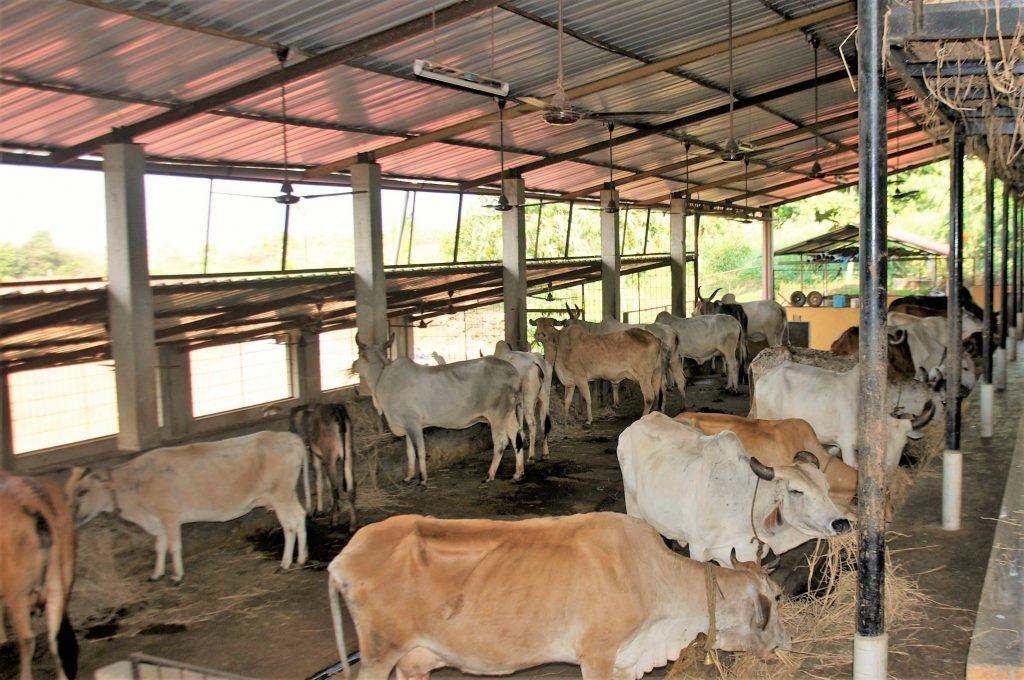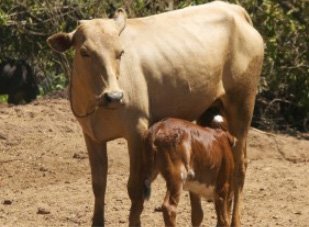Cow Farming

What is Cow Farming?
Cow farming refers to the process of raising cows for milk production. This is often done for the dairy purpose, where high milk yielding cows are reared in large numbers for production of milk and dairy products at a commercial level. India is one of the largest producer of milk and identified as having a potential for exponential growth of the dairy farming. India has 120 million cows comprising more than 30 indigenous breeds and some imported and crossbreeds.Types of cow farming
- Household Cow FarmingConventional cow farming aims at milk production and farm labor, for which cows and oxen are used. Cow farming is an age-old practice among most of the regions and communities across India. Most of the people perform this at a household level, just to produce milk required for the family. The household cow farming is the most common type prevailing across India.
- Commercial Cow FarmingDairy farming is a profitable business in India, providing an excellent opportunity for self-employment of unemployed youth. Besides, it acts as an important source of additional income to small and marginal farmers and agricultural laborers. The success stories of brands like Amul, Nandini, etc. have established the potential of commercial cow farming in India.
Key Aspects of Cow Farming
- Food : Food is the essential input for any animal and it should be available in adequate amount, which is true with cows also. Water is the major component of food for animals and providing clean drinking water is crucial for sustaining the good health of the cows. Fodder comes next, which contributes the bulk food material for cows maintained in pens. Grains, oil cakes, etc. form the nutritional supplements for cows in traditional cow rearing practice. Modern dairy farming incorporates, other types of nutritional supplements like algae, formulations derived from nutritional components, etc. Another key food ingredient the cows need is green fodder comprising grasses and green leaves of good fodder trees like the drumstick, jackfruit, subabul, etc. which provide nutrition, immunity, and vigor for the cows. Pasture grazing has been identified as the best diet for cows for safeguarding their health as well as the quality of their milk. Milk produced by pasture grazing cows is known to contain Omega-3 Fatty Acids and Conjugated Linoleic Acid (CLA), contributing to the long-term health of human beings. All food items provided to the cows need to be clean and minimal contamination from pollutants like industrial wastes, pesticides or biological wastes.
- Shelter : Cow sheltering is important in commercial cow farming as more number of cows need to be accommodated in the pens. Overcrowding needs to be avoided since it will affect the general hygiene of the pens as well as the behavior of the cows.
- Hygiene : Hygiene of the pens and the individual cows and calves is crucial for the general health of the cows as well as clean milk production. The pens should be cleaned and washed regularly and treated with mild disinfectants and insect repellents to keep the cows safe from pathogens and insect bites. The cows also need to be bathed at regular intervals (depending on the climate of the location) for maintaining them cleanly.
- Care : Cows need proper care and affection from the owners for maintaining their well-being. Special care is needed for the post-parturition period of milking cows and young calves. Vaccination against common infectious diseases, treatment for ailments and injuries, etc. needs to be provided on a priority basis for the cows and calves. The emotional well-being of the cows also needs to be taken care through personal touch of the owner’s family and treating them similar to human beings in all relationships.
Adding a New Dimension to Cow Farming
Help Us Now

Donate to Surabhivana Gaushala to save and protect Indian Cow Breeds.
All donations are exempt under Section 80G of the Income Tax Act, 1961. All donation receipts shall be mailed to the address given by the donor or may be collected in person, at request.
Click the below button to donate through credit cards/debit cards or Net Banking via Razor Pay.
